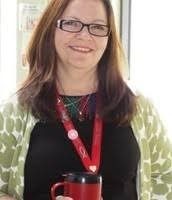Promoting Inclusion in Further Education
At the age of two I was given the present of a brother who had severe learning disabilities and mobility difficulties. For as long as I can remember I have been an advocate-sister. The strong bond I have with my brother and our shared experiences have shaped my life greatly, including my professional choices and the causes I support. The rights of people with disabilities are part of the fabric I am made of – much more than a cause, it is who I am.
 As a professional educator and educationalist my focus is promoting inclusive education and alternative provision, delivering tailored support for further education (FE) college students and, to an extent, teaching staff.
As a professional educator and educationalist my focus is promoting inclusive education and alternative provision, delivering tailored support for further education (FE) college students and, to an extent, teaching staff.
My education career began in my home country, Brazil, where I spent many years working in senior management roles in mainstream educational settings, collaborating with teaching and support staff. The idea of inclusion in was not introduced to the education debate in Brazil until the 1990s. Following this, my interest in learning about inclusive practice motivated me to leave Brazil and study abroad where I believed, perhaps naively, that inclusion was already happening.
In 2011 I completed a doctorate on the topic of ‘Inclusive Practices in Education’ and have since immersed myself in learning more about this. Inclusive practice has subsequently become a crucial part of my work providing learning support within the mainstream Further Education (FE) sector in the UK. Prior to this I worked in a UK secondary school as part of the pastoral team, where I gradually migrated to a SEN focused role. In both settings, supporting students with learning difficulties and other special needs, I’ve witnessed a mixture of good inclusive education practice, alongside more questionable approaches.
A common thread I’ve encountered along the way is the pressure placed upon teaching staff to deliver measurable, results-based teaching practices, which aren’t as inclusive as they’d personally like. A significant proportion of teachers seem to find themselves at a crossroads when it comes to inclusion, as accountability on other aspects of their role is immense, including attendance, exams results and progression. All of which have real educational value, but result in completely diverse outcomes for students with disabilities in comparison to, so-called, able students. Although teachers are expected to design lessons incorporating differentiation, the success of this is not always measured to account for the different ways of learning or differences in abilities learners have. This causes barriers to learning for many children and young people, who struggle to fit into the requirements of a system primarily focussed on exams and grades.
In my current FE setting I have been involved in implementing measures to address this. For example, the college have adopted an increasingly inclusive approach to learning support including more integration of support staff into the whole college culture – with positive impact. Providing learning support to the wider college community has resulted in a blurring of boundaries between what is considered SEN and mainstream support. I am hopeful such initiatives can inform inclusive education debate and go some way to reduce the limitations faced by educators who advocate and work to progress inclusion. Unesco states the aim of their ‘Futures of Education’ initiative is to: “catalyse a global debate on how knowledge and learning can shape the future of humanity and the planet”. While it is a continuous work in progress, as is the nature of education, I believe inclusion is the right of every child and young person and that it is our job as educators to improve our practices and make it happen.
Hilra Vinha
![Allfie [logo]](https://www.allfie.org.uk/wp-content/themes/allfie-base-theme/assets/img/allfie-logo-original.svg)



